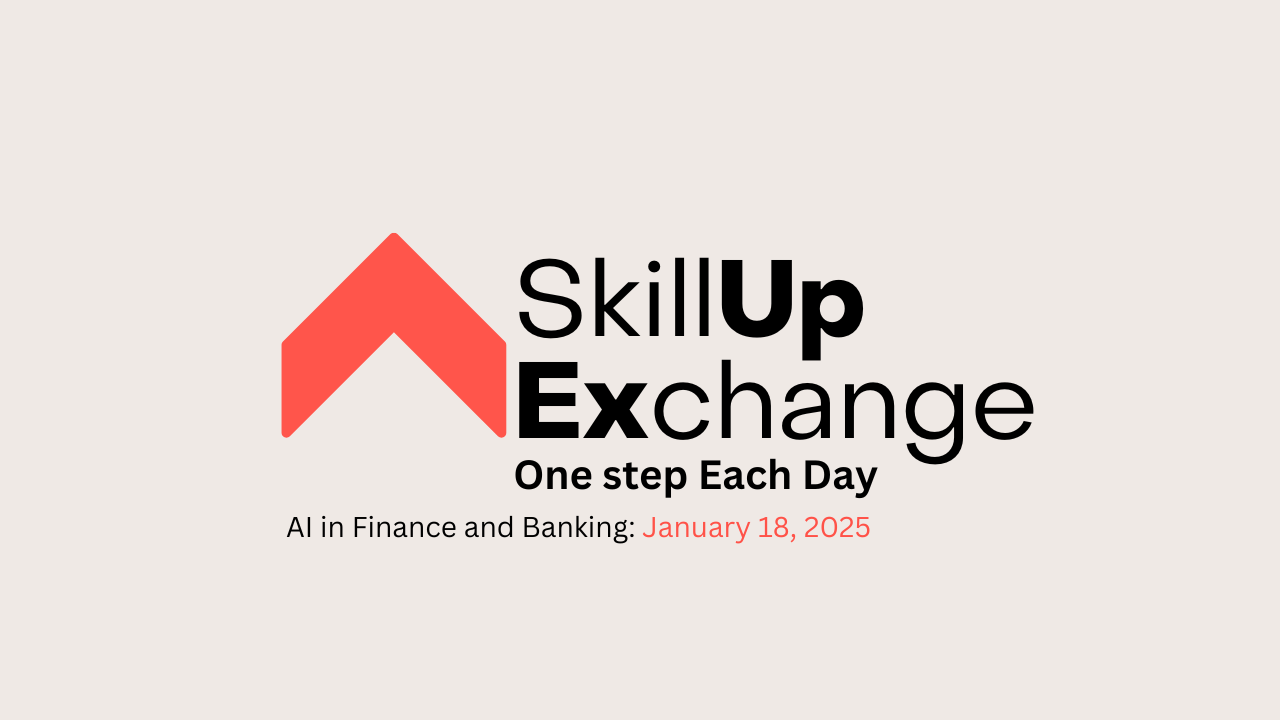
AI in Finance and Banking: January 15, 2025
This semi-monthly column explores the rapid advancements and impacts of Artificial Intelligence (AI) in the banking and finance sectors. The insights provided include news, industry reports, academic papers, and central bank activities, accompanied by links to primary sources and, where possible, free versions.
News Highlights
Wall Street Faces 200,000 Job Cuts Due to AI Transformation
Global banks are bracing for workforce reductions of up to 200,000 positions within the next three to five years as AI increasingly automates tasks. A Bloomberg Intelligence report reveals that banks are targeting roles in the back office, middle office, and operations for cuts, alongside customer service jobs due to AI-powered chatbots. While these changes threaten traditional positions, Tomasz Noetzel, BI’s senior analyst, emphasizes that AI will transform rather than eliminate roles entirely. Some banks, including Citigroup, JPMorganChase, and Goldman Sachs, foresee even deeper cuts, ranging between 5% to 10% of their workforce.
OpenAI Appoints Adebayo Ogunlesi to Its Board
OpenAI has appointed billionaire investor Adebayo Ogunlesi to its board amid corporate restructuring and expansion efforts. Ogunlesi, a key figure in Wall Street dealmaking, brings strategic expertise as OpenAI shifts to a for-profit model in response to rising competition. This appointment follows a turbulent period for OpenAI, including CEO Sam Altman’s ousting and reinstatement in 2023.
AI Revolutionizes Banking Operations
AI is no longer optional for financial institutions. With applications ranging from chatbots to fraud detection systems, AI enhances efficiency, customer experience, and risk management. Key benefits include:
- Enhanced Customer Experience: AI tailors banking services through personalized recommendations.
- Operational Efficiency: Automation of routine tasks minimizes errors and cuts costs.
- Improved Risk Management: AI algorithms analyze vast datasets to identify risks and fraud.
- Regulatory Compliance: Automated compliance processes streamline adherence to complex regulations.
AI Financial Advisors Target Gen Z and Millennials
AI finance apps are reshaping money management for younger generations, using personalized chatbots to provide financial advice. These tools aim to make budgeting and investment accessible while upselling premium services.
AI Reshaping Wealth Management
Impact: Major firms like Morgan Stanley and Vanguard have reported significant improvements in efficiency and client satisfaction.
Trend: Financial advisors are increasingly using AI to manage client portfolios. Machine learning tools help identify trends, forecast risks, and optimize investment strategies.
AI-Powered ESG Investments Gain Traction
Trend: AI is driving growth in Environmental, Social, and Governance (ESG) investments by analyzing large datasets to uncover opportunities.
Impact: BlackRock’s AI platform has enabled real-time ESG scoring, enhancing investment decisions.
AI Enhances Anti-Money Laundering Measures
Trend: Banks are using AI to improve anti-money laundering (AML) processes. By automating data analysis and transaction monitoring, institutions like HSBC and Deutsche Bank are detecting suspicious activities more effectively.
Impact: AI reduces false positives and improves the accuracy of AML systems, saving time and resources.
AI Accelerates Digital Banking Transformation
Digital banking services are leveraging AI to improve customer engagement. AI chatbots and personalized financial tools have become standard offerings at institutions like Ally Bank and Capital One, driving customer retention.
In-Depth Analysis
The Rise of the “AI Whisperer” in Banking
AI’s impact is reshaping the banking workforce. Citigroup’s research indicates that AI could affect 75% of banking jobs, displacing traditional roles while creating new ones. Industry leaders liken this shift to the adoption of Microsoft Excel in the 1980s—transformative but not destructive.
Bias in AI Lending Models
While AI has revolutionized credit decision-making, biases persist. Studies reveal disparities in loan approvals based on race, gender, and socioeconomic factors. Addressing these inequities requires a closer examination of training data and underwriting criteria.
NGO/IGO Reports
World Economic Forum’s Future of Jobs Report 2025
The report examines macroeconomic and technological trends shaping the global labor market through 2030. It highlights AI’s transformative impact on jobs, with 41% of companies planning workforce reductions but also investing in upskilling.
Academic Papers
EMNLP 2024 Contributions by Bloomberg AI Researchers
Bloomberg’s AI teams presented groundbreaking research at EMNLP 2024, exploring how knowledge is stored in large language models. Their methods pinpoint specific parameters responsible for storing knowledge, paving the way for more precise model updates.
Statically Locating Knowledge in LLMs
Key Insight: Researchers demonstrated the ability to disable specific types of knowledge within models, such as CEO names, without affecting unrelated information. These findings have implications for maintaining model accuracy while addressing ethical concerns like bias reduction.
Conclusion
Unlock the future of finance with our Generative AI and Python for Algorithmic Trading and Quantitative Finance cohort-based course! Master cutting-edge AI tools, Python programming, and quantitative strategies to stay ahead in the fast-evolving financial markets. Limited seats available—enroll now and transform your career!






